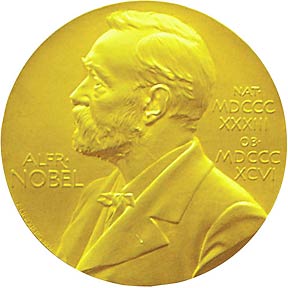
Wow: Can you believe anything anybody writes any more?
The New York Times is still reeling after their gut-felt rave over the book Love and Consequences, and loving profile of its author, Margaret B. Jones. Love and… is Jones’ memoir of her life as a scrappy, foster white girl, growing up wild with the Bloods in the streets of South Central LA.
Meanwhile, Consequences are what her behind, the Times, and he publisher, Riverhead/Penguin, are feeling right this instant.
We now know that “Margaret B. Jones” is actually—get this—Margaret Seltzer. (Wow…does it get any whiter?) Instead of being dragged through inummerable foster homes, Seltzer was raised by both parents in the well-heeled San Fernando Valley. As opposed to ducking in and out of violent, drug-infested Compton alleyways, she spent her teen years ducking in and out of private Episcopal school hallways. Instead of gangs, she had her hair in bangs…o.k., I’m going too far, now, but you get the point: She made up the whole 296 pages.
But did a group of eminent medical researchers, including a Nobel Prize-winner, just get caught doing the same thing?
A team of scientists including Linda B. Buck, who shared the 2004 Nobel Prize in Physiology or Medicine, has retracted a scientific paper after the scientists could not reproduce their original findings.
In the scientific community, that couched language—”the scientists could not reproduce their original findings”—basically means that, “On this dating web site, your profile sounded great, and your picture looked fantastic. But when we actually met, you were at least six inches shorter, 40 pounds heavier, and 20 years older than you said.”
In the paper, the researchers described how they produced genetically engineered mice that produced a plant protein in certain smell-related neurons. The researchers had claimed that as the plant protein traveled between neurons, they could map out which neurons in the cortex of the brain received information from which smell receptors in the nose.
In the retraction, published by Nature on Thursday, the researchers said, “Moreover, we have found inconsistencies between some of the figures and data published in the paper and the original data. We have therefore lost confidence in the reported conclusions.”
Also, said the Times,
The Harvard Medical School, where the researchers worked when the findings were published in the journal Nature in 2001, has begun a review of the research to determine if there is any evidence of misconduct.

Buck, right, shared a Nobel medallion, pictured above, and $1.3 million with Richard Axel, “for their discoveries of odorant receptors and the organization of the olfactory system,” according to the Nobel web site. Essentially, their work, as explained in a 2004 Times piece, clarified how the human brain recalls and differentiates between thousands of smells. (Axel has been an investigator at the Howard Hughes Medical Institute in Chevy Chase, MD since 1984, and was not involved in the now-widely debated research.)

Buck co-wrote the paper, “Genetic Tracing Reveals a Stereotyped Sensory Map in the Olfactory Cortex,” with Zhihua Zou, Lisa F. Horowitz, Jean-Pierre Montmayeur, and Scott Snappe. As the lead author on the report, Zou, right, is, thus, the source of the research’s unraveling statistical data. (Zou was a postdoc when working with Buck. He’s now at the University of Texas Medical Branch in Galveston, as his dashing, white UTMB lab coat indicates.)
Did these researchers fake their findings? If so, are all responsible, or just the lead author? If all are culpable, will the effect of being charged with fraud work its way back to Stockholm, and threaten Linda B. Buck’s Nobel prize?
I hope not. But Dr. Buck, if it comes to that, I know a certain fiction writer who will run your jewels and take your Nobel medallion off yo’ neck if she ever…EVER! catches your narrow ass up in Compton again!
Wes’ SIIIIDE!

1 comment so far ↓
Imagine if Dr. Zou was not caught like many others! Years later, he probably will be the authority in the field. At that time, he would have power to put his name in the paper without taking any responsibility.
I don’t believe that Dr. Zou and Dr. Buck’s other papers are clean. I don’t believe that there is no misconduct. I don’t believe that Dr. Zou is innocent. I don’t believe Dr. Buck is innocent. Buck likely is the head of the conspiracy. Likely Dr. Zou is just a genuflector to the fallacious ecosystem of bioscience. Due to his bending, he got the reward from the boss.
However, later on Harvard committee probably will cover all things up for Dr. Buck. To the system, Dr. Zou is dispensable, but not Dr. Buck. Let us watch.
Leave a Comment